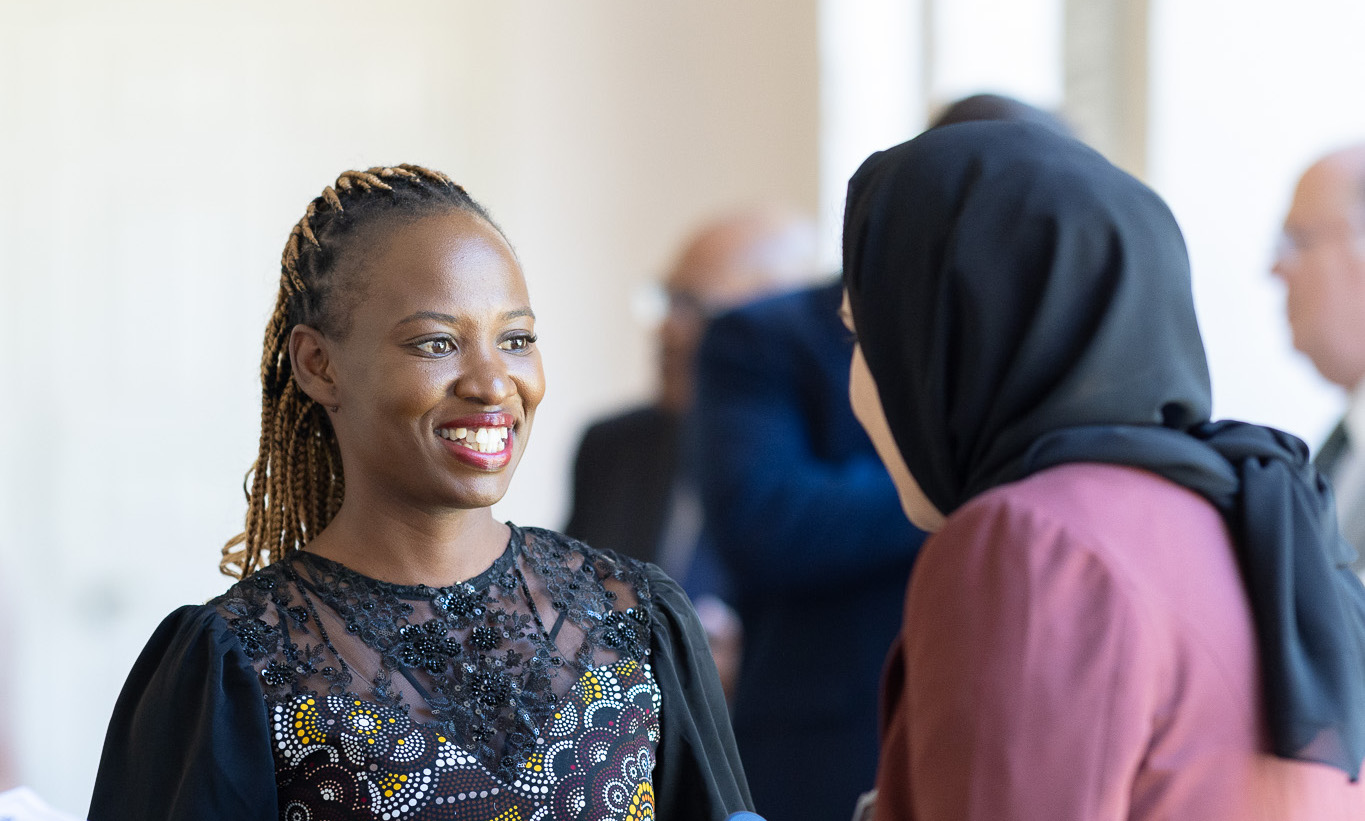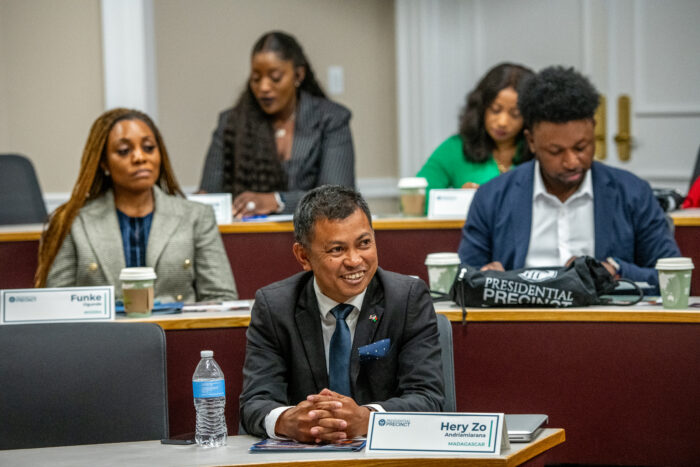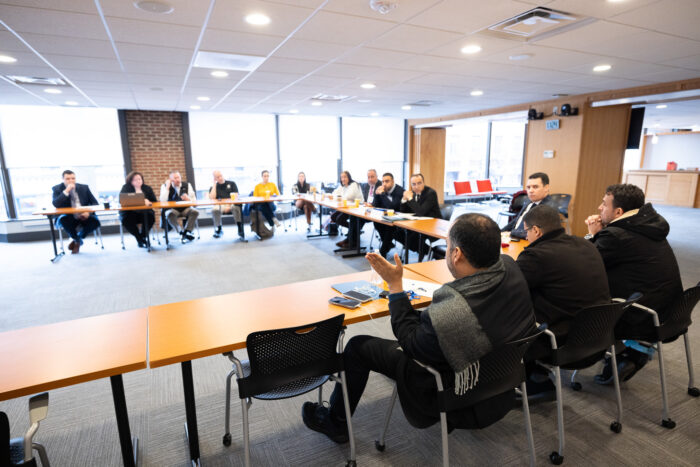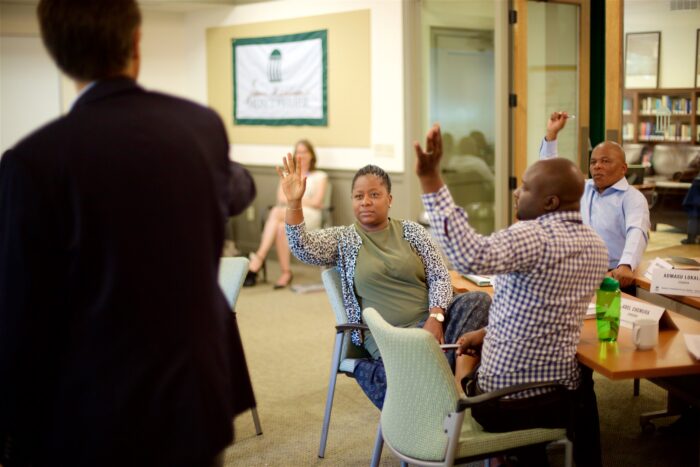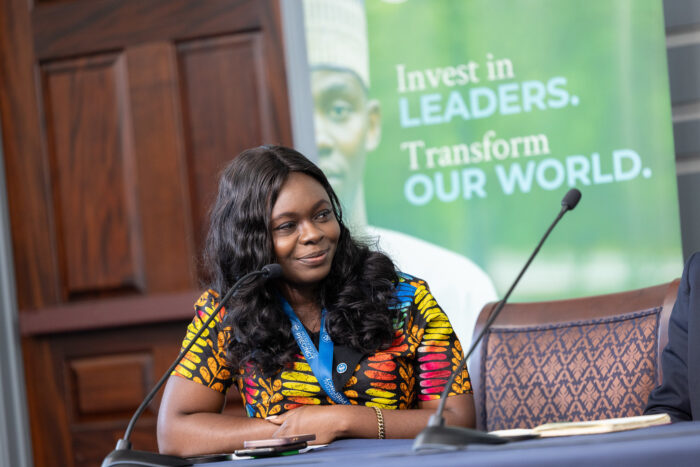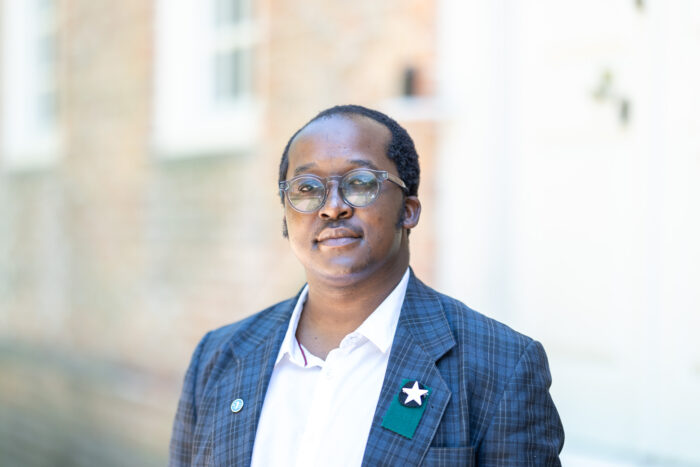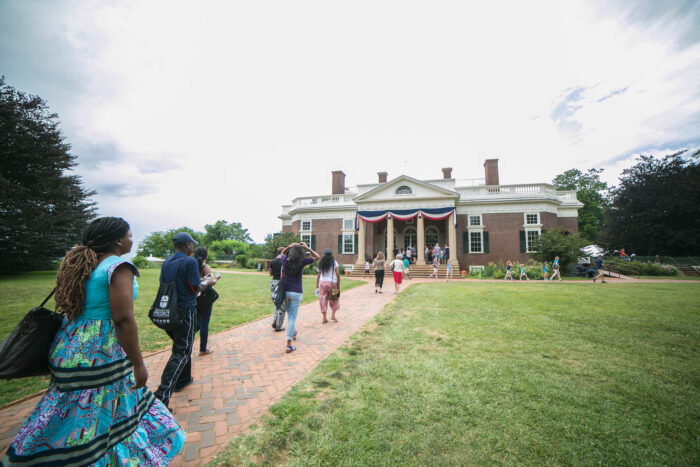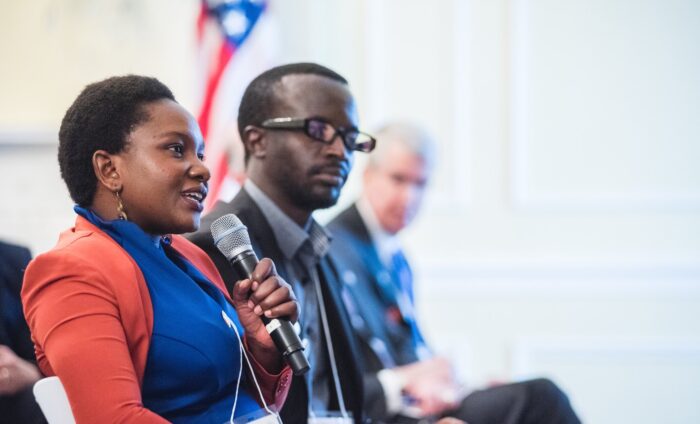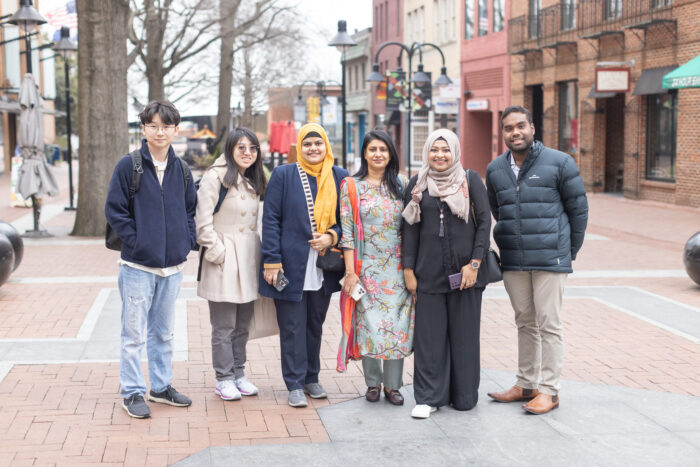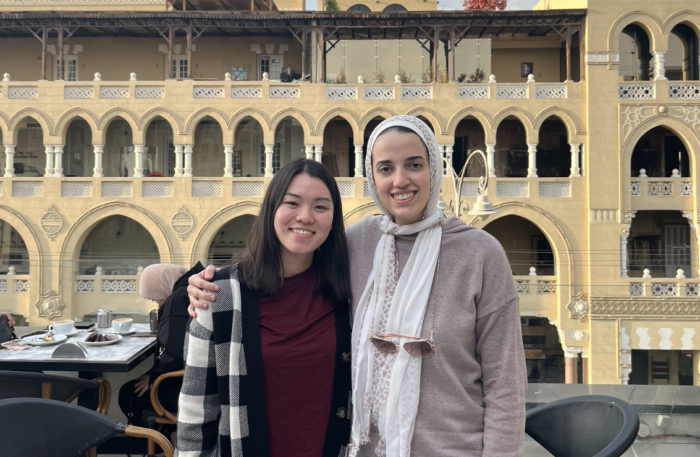Chichi Mlingwa: When the Dots Finally Connect
On this day in 2017, a Young African Leader sat down and put his thoughts to paper to reflect on lessons learnt during his first week as a Mandela Washington Fellow. He was, at the time, taking part in the Leadership in Civic Engagement track at the Presidential Precinct. His name is Dzikamai Bere and he titled his reflections: “It is not easy to sing alone”.
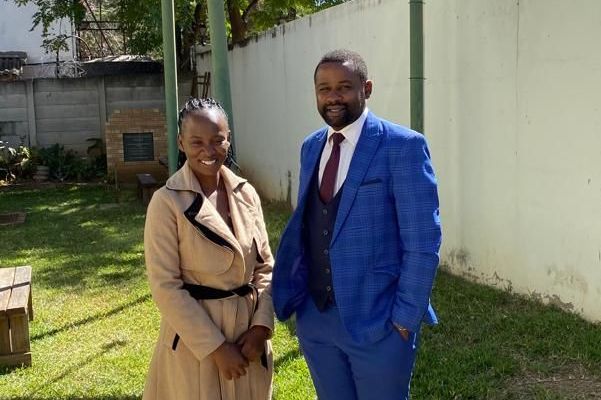
During that same time, exactly 8,164 miles across the Atlantic Ocean, was a despondent young lady waiting tables at a fish and grill restaurant in South Africa called John Dory’s. This young lady had been forced to stop pursuing her education owing to financial difficulties after her mother was diagnosed with breast cancer.
This young lady had no way of knowing then in 2017, as she suffered from a severe loss of self-esteem, having gone from high achiever as a Law graduate to a struggling waitress, that she would one day work for the same not-for-profit organization (the Zimbabwe Human Rights NGO Forum) that at some point also employed Dzikamai. Not only that, but that she would, within just two years of joining the organization, be elevated to being the leader of that organization’s Research, Documentation, and Advocacy department.
The young lady that is being referred to in the above narration is myself – Chiedza Patience Mlingwa.
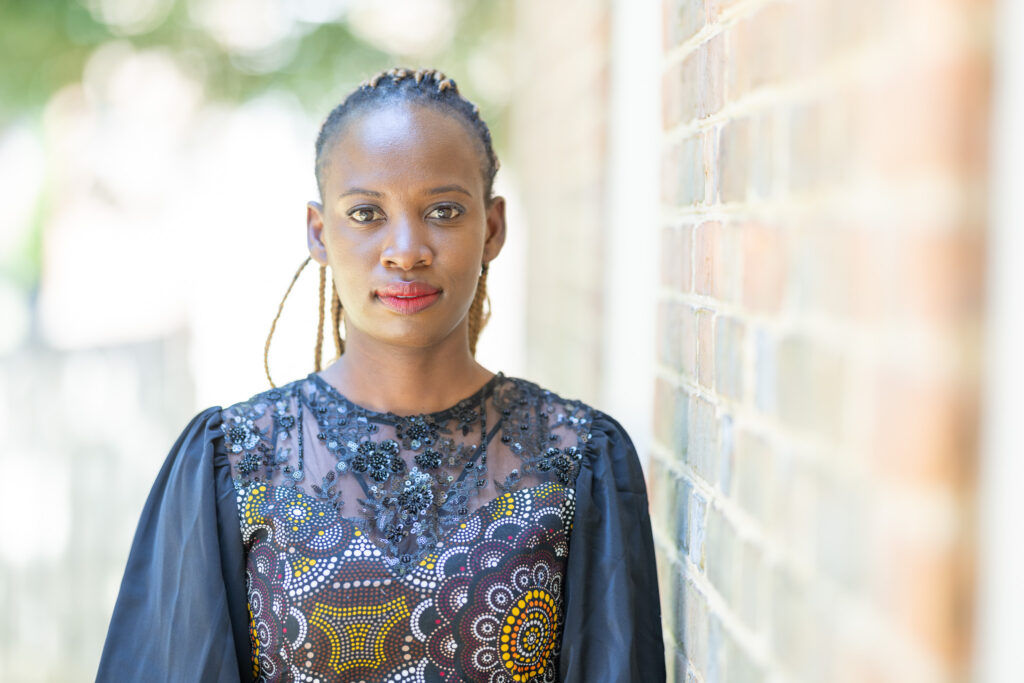
On January 12, 2019, my mother lost her battle with cancer. This was to mark the start of a chain of events that are difficult to process by any standards. I had been born into a polygamous family setup – where a man takes multiple wives. As typically occurs in African homes exposed to this dynamic, the father is rarely able to look after his large family. As a result, I was raised primarily by my mother and her siblings who all joined forces. In Africa, it really does take a village to raise a child.
On January 9, 2020, two days away from the first anniversary of my mother’s death, her sister (the third eldest) collapsed and died. On February 28, 2020, my other mother’s sister (the first-born sibling) collapsed and died. She was the family matriarch – the glue that held the family together. A couple of months down the line, on October 23, 2020, my mother’s brother collapsed and died. They all appeared to be succumbing to high blood pressure. He was followed a few months later on March 10, 2021 by the last surviving sibling who also collapsed and died.
At round about the same time that all this was going on in 2020, Nancy Hopkins, Executive Director at the Chris Long Foundation and former Director of Programs at the Presidential Precinct (from January 2016 to December 2021) traveled to Zimbabwe. She met with former Executive Director of the Zimbabwe Human Rights NGO Forum, Blessing Gorejena; the then Executive Director of the Zimbabwe Human Rights NGO Forum, Dr. Musa Kika; and she also met with Dzikamai Bere and other colleagues to do some joint program planning. I had by this point been unemployed for two years after having had to fully return to Zimbabwe in January 2019 after my mother’s passing.
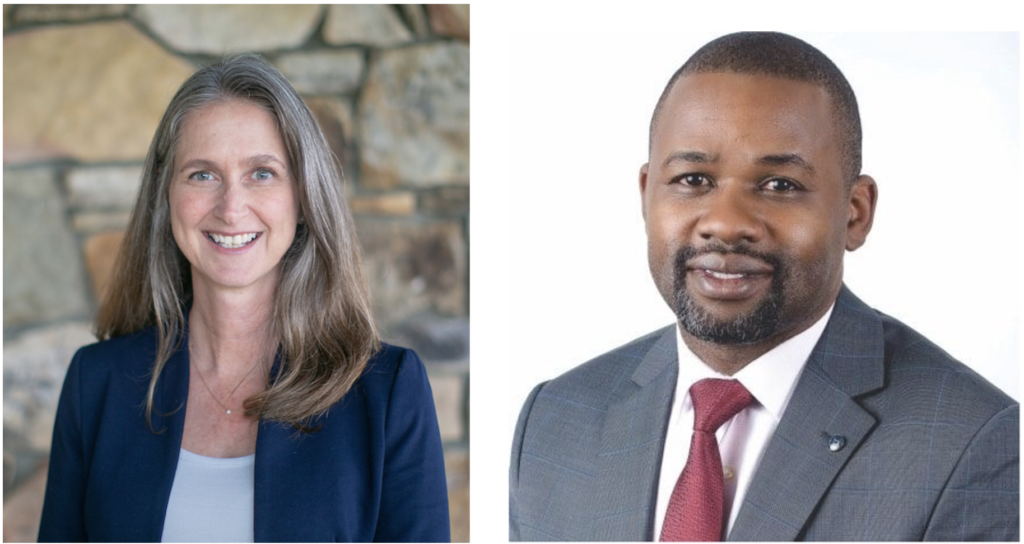
Here’s where it gets interesting. Dr. Musa Kika and myself had both been awarded a presidential scholarship in 2011 for high achievers from struggling backgrounds that had both taken us to the same law school in South Africa. At the time of Nancy’s arrival in Zimbabwe, I had no way of knowing that Dr. Kika and my former lecturer Emmanuel Sairosi were frantically looking for me with the aim of offering me a job opportunity. I no longer had a phone. It had stopped working and I could not afford to repair it. I was completely off radar: with no means of receiving emails, calls, texts or messages via my online social platforms. I was, at that point, a street vendor who was selling the clothes I used to wear in South Africa for a living. In short, Nancy and I actually could have met in 2020. But we didn’t. The dots would however eventually connect.
As destiny would have it, four years down the line, Nancy Hopkins was to end up as my Focus Project Coach. We had our first virtual meeting on June 22 and as we discovered the common threads that connect us, I said to her: “Nancy, I’m glad we did not get to meet on your trip to Zimbabwe in 2020!” Life still had lessons it wanted to teach me. Had she met me then, I would not be possessing the characteristics I have now. I have come to realize that my life has been heavily characterized by a persistent trend of having to constantly overcome continuous obstacles. I used to think that was tragic – now, I am grateful for it all.
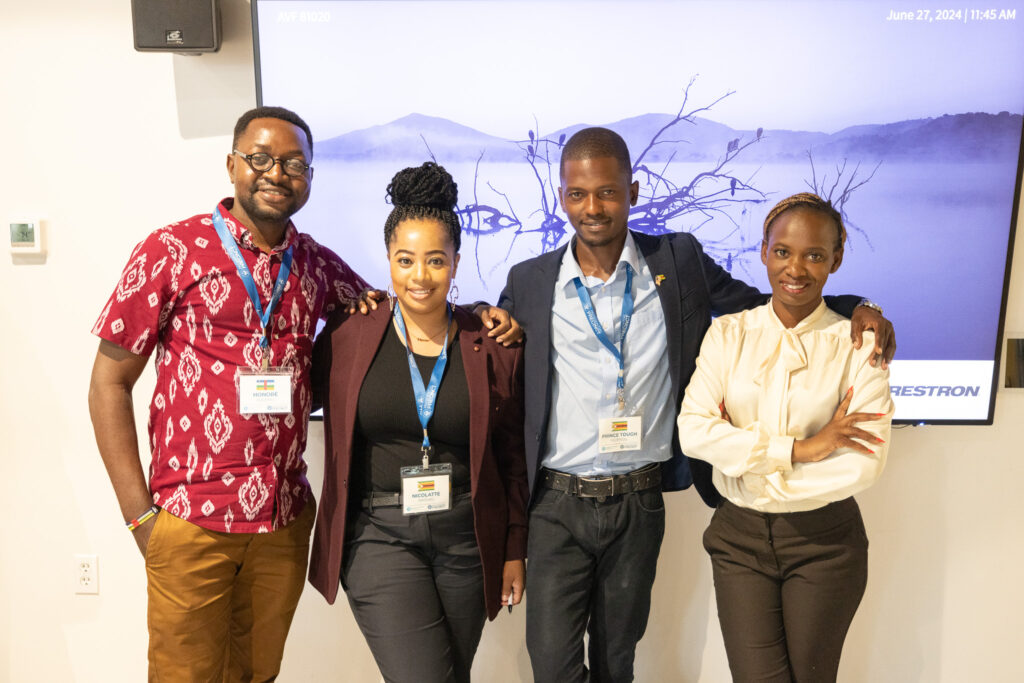
In my application for the 2024 Mandela Washington Fellowship for Young African Leaders, I encountered the prompt: “Resilience is a critical quality in effective leaders. Provide an example of how you have demonstrated resilience during challenging times.” I shook my head and laughed – I had so many examples that I didn’t know where to begin! It was then that I finally realized for the first time in my life that I truly had a compelling story to tell.
For me to be here, at this place, and at this time, underscores the significance of the power of grace, timing and placement. Nothing in life is a coincidence.
The dots for me connected through the Keynote Remarks delivered by The Honorable John Charles Thomas on June 21 in the Wren Chapel. In his acceptance remarks, Judge Thomas, who often speaks through poetry, recited a composition of his, “Light the Soul.” One particular stanza of this poem says:
“We learn by light, we grow by light
We sit in the dark transfixed by its sight
And as the light flickers our hearts respond
We can see the connections we can feel the bonds.”
I was mesmerized. My heart responded and swelled with pride. Indeed, I saw the connection and felt the bonds. And I’ll tell you why. My first name, Chiedza is a Shona word which directly translates to “being the light.”
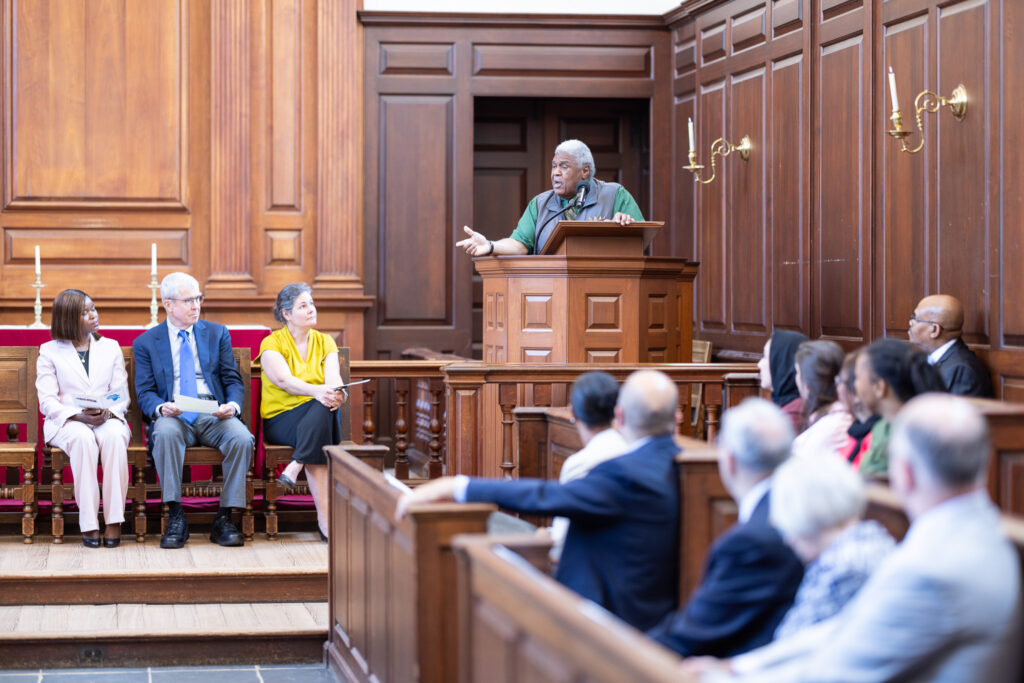
W. Taylor Reveley II in the Foreword to John Charles Thomas’ memoir The Poetic Justice says: “Adversity could easily have broken John Charles. But he wouldn’t let it.” Since my arrival at the Precinct, I have been so privileged to meet and connect with fellow young African leaders who are honestly doing exceptional human rights related work in their countries. To me their most remarkable trait is how resilient they all are and have been in the face of adversity. From a Fellow raised in a refugee resettlement camp to a Fellow who is a rape survivor and is affected by endometriosis, I am humbled and in constant awe of how dots will always connect to bring together the right people, at the right place at just the right moment. That, to me, truly embodies: The Power of Place and Power of Ideas.

